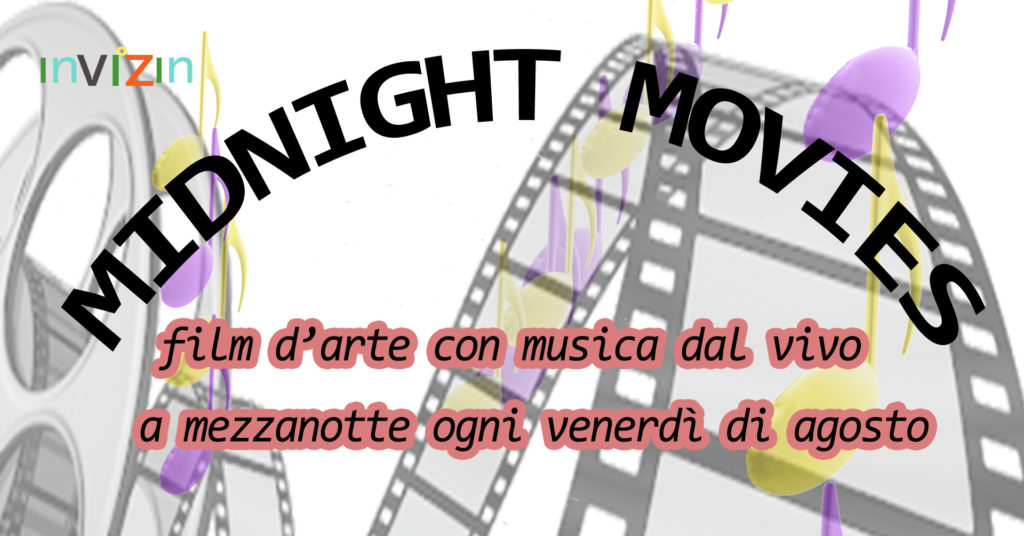
A series of experimental films with live improvised music every Friday in August at MIDNIGHT!
open air weather permitting.
seats distanced.
masks recommended.
07.08.
The film: Stan Brakhage – The Act of Seeing with One’s Own Eyes (1971) 31:54 min
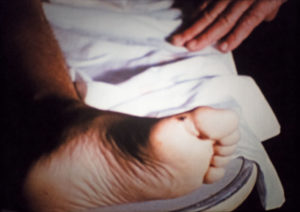 The Act of Seeing with One’s Own Eyes is a 1971 American experimental film by Stan Brakhage. It was shot on 16mm without synchronized sound in a Pittsburgh morgue. The title is based on a literal translation of the Greek term for autopsy. The film is part of Brakhage’s “Pittsburgh trilogy”, a trio of “documentary” films made by Brakhage on the various institutions of the city in 1971.
The Act of Seeing with One’s Own Eyes is a 1971 American experimental film by Stan Brakhage. It was shot on 16mm without synchronized sound in a Pittsburgh morgue. The title is based on a literal translation of the Greek term for autopsy. The film is part of Brakhage’s “Pittsburgh trilogy”, a trio of “documentary” films made by Brakhage on the various institutions of the city in 1971.
Brakhage shot The Act of Seeing with One’s Own Eyes during a visit to a morgue. The film documented typical highly graphic autopsy procedures such as organ removal and embalming.
The musicians: Unibrido
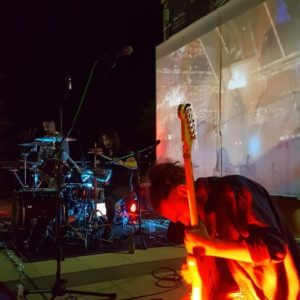 Alt-rock duo.
Alt-rock duo.
A gastro-intestinal musical project.
We eat anger to live, we carry forth P.I.G.S Rock
Even before being Unibrido, Carlo (House Of Sound, Not Found) and Marvin (The Little House Blues Band, The Blues Stalkers, The Bluesness, No Panik Music, Not Found) were two boys from the now defunct Italian middle class who live in the Abruzzo hinterlands (Lovely places, for heaven’s sake, but there is no library within thirty kilometers).
Forced to work in the factory to buy the tools to survive, in 2018 they combined ideas and affinities to give life to a visceral and urgent musical project.
Thanks to the collaboration with Luigi Caprara of the Lunchbox Studio, they recorded the first songs of their debut album P.I.G.S., a very personal insight into a contemporary, violent, nihilistic and colorful society.
14.08.
The film: Aldo Tambellini, Thomas Tadlock, Allan Kaprow, James Seawright, Otto Piene, Nam June Paik – The Medium is the Medium (1969) 30 min
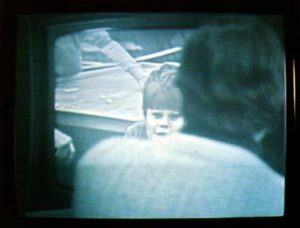 Six artists were invited to work with television technicians to create The Medium Is the Medium. Aldo Tambellini’s Nero work presents images of slides, films and television monitors and children’s responses. Architron by Thomas Tadlock uses an “electronic optical machine” of his own invention, which creates motifs similar to kaleidoscopes of color and light. Allan Kaprow Hello’s “telehappening” uses multiple monitors to help people in various locations in Boston connect with each other. In James Seawright’s Capriccio two dancers depicted in negative and positive images overlap in a range of colors. In Otto Piene’s Electronic Light Ballet a young woman is levitated with hot air balloons against a background of feedback and colorful designs. In Nam June Paik’s Electronic Opera # 1, a topless dancer and three hippies have their images manipulated and distorted, saturated with additional color. Just when it seems that the work is about to start again from the beginning, the voice begs the viewers, “Turn off the TV”.
Six artists were invited to work with television technicians to create The Medium Is the Medium. Aldo Tambellini’s Nero work presents images of slides, films and television monitors and children’s responses. Architron by Thomas Tadlock uses an “electronic optical machine” of his own invention, which creates motifs similar to kaleidoscopes of color and light. Allan Kaprow Hello’s “telehappening” uses multiple monitors to help people in various locations in Boston connect with each other. In James Seawright’s Capriccio two dancers depicted in negative and positive images overlap in a range of colors. In Otto Piene’s Electronic Light Ballet a young woman is levitated with hot air balloons against a background of feedback and colorful designs. In Nam June Paik’s Electronic Opera # 1, a topless dancer and three hippies have their images manipulated and distorted, saturated with additional color. Just when it seems that the work is about to start again from the beginning, the voice begs the viewers, “Turn off the TV”.
The musician: Teo Pace
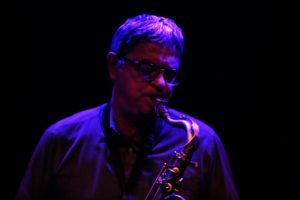 Self-taught multi-instrumentalist, Teo participates in many musical formations, ranging from progressive rock, jazz, free jazz and ethnic music. He plays double flute, transverse flute, small clarinet in e flat, bass clarinet, soprano and tenor sax, shawm and key bagpipes.
Self-taught multi-instrumentalist, Teo participates in many musical formations, ranging from progressive rock, jazz, free jazz and ethnic music. He plays double flute, transverse flute, small clarinet in e flat, bass clarinet, soprano and tenor sax, shawm and key bagpipes.
He has been a member of: Ert Ion, Era Orab, Iamoik, Magnetic Place, GRA / D, LoFlopper, Ratablò, Transhumance Orchestra, and Paranzella.
He currently plays with Malafé and Riot.
21.08.
The films:
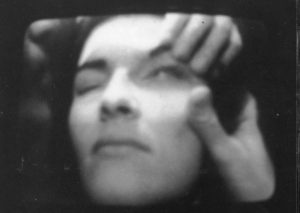 Vito Acconci – Pryings (1971) 17:10 min.
Vito Acconci – Pryings (1971) 17:10 min.
Documentation of a live performance at New York University, Pryings is a graphic exploration of the physical and psychological dynamics of man / woman interaction, a study on control, violation and resistance. Closed in a silent embrace, the couple’s struggle is violent, passionate; Acconci’s sadistic coercion is tinged with a sinister tenderness. The body is a vehicle for a literal staging of desire and resistance against intimate contact.
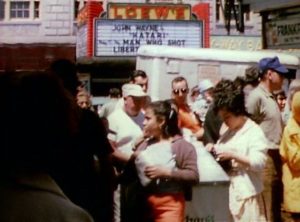 Marie Menken – Go! Go! Go! (1964) 11:31 min.
Marie Menken – Go! Go! Go! (1964) 11:31 min.
For Menken, animation has become a way of radically transforming the world around her, revisiting post-war New York, for example, in her masterpiece of single-frame cinematography. Go! Go! Go! (1962-64), a work that condenses two years of patient documentary film into a delusional and exhilarating vision of an overactive city.
The musician: Alessandro Cicchitti (Vocal experiments)
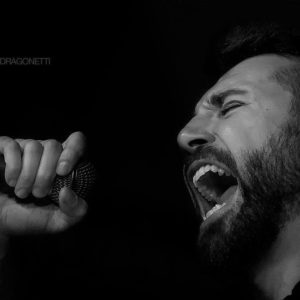 The voice is Alessandro’s instrument, the first instrument. A vocal research that has lasted for about 15 years (part of this time with the experimental group The Suricates), subsequently passing into “noise”, where musical grammar is not allowed, but there is an opportunity to consider each useful sound for improvised composition. The voice splits with diplophonies (as Maestro Demetrio Stratos – Area taught us) and is then multiplied within live samples, CB microphones, recorders and toy distortions.
The voice is Alessandro’s instrument, the first instrument. A vocal research that has lasted for about 15 years (part of this time with the experimental group The Suricates), subsequently passing into “noise”, where musical grammar is not allowed, but there is an opportunity to consider each useful sound for improvised composition. The voice splits with diplophonies (as Maestro Demetrio Stratos – Area taught us) and is then multiplied within live samples, CB microphones, recorders and toy distortions.
Playing with the voice through popular music, trip hop and noise.
28.08
The film: Pina Bausch – Café Müller (1978) 49 min.
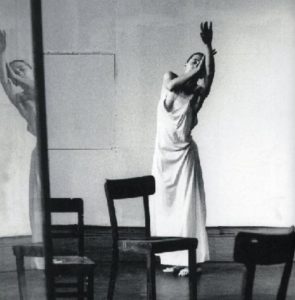 A performance by Pina Bausch
A performance by Pina Bausch
Music – Henry Purcell
Director and choreographer – Pina Bausch
Scenography and costumes – Rolf Borzik
Collaboration – Marion Cito, Hans Pop
Malou Airaudo, Pina Bausch, Meryl Tankard, Rolf Borzik, Dominique Mercy, Jan Minarik
Premiere May 20, 1978, Opera House Wuppertal
“What you see is what you get, a very charged theatrical experience performed by mature-looking actors who seem to have passed from life before even starting to live. The excitement emanates from the highly controlled energy, the brilliant use of space, the cinematic overlap and the flow of images.”
The musician: Giulio Marino
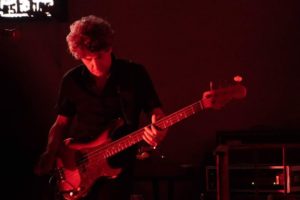 Born in Ortona (CH) Italy
Born in Ortona (CH) Italy
lives in Ortona
Currently the bassist in Polemica and RIOT
bassist from the age of 23 (first debuted as a singer / guitarist)
also a double bass player, guitarist and singer.
He played the double bass for 10 years with jazz, ethnic and radical improvisation bands.
He played for 10 years as a guitarist / singer in the rock bands Resistant Material, Disorchestra and others …


